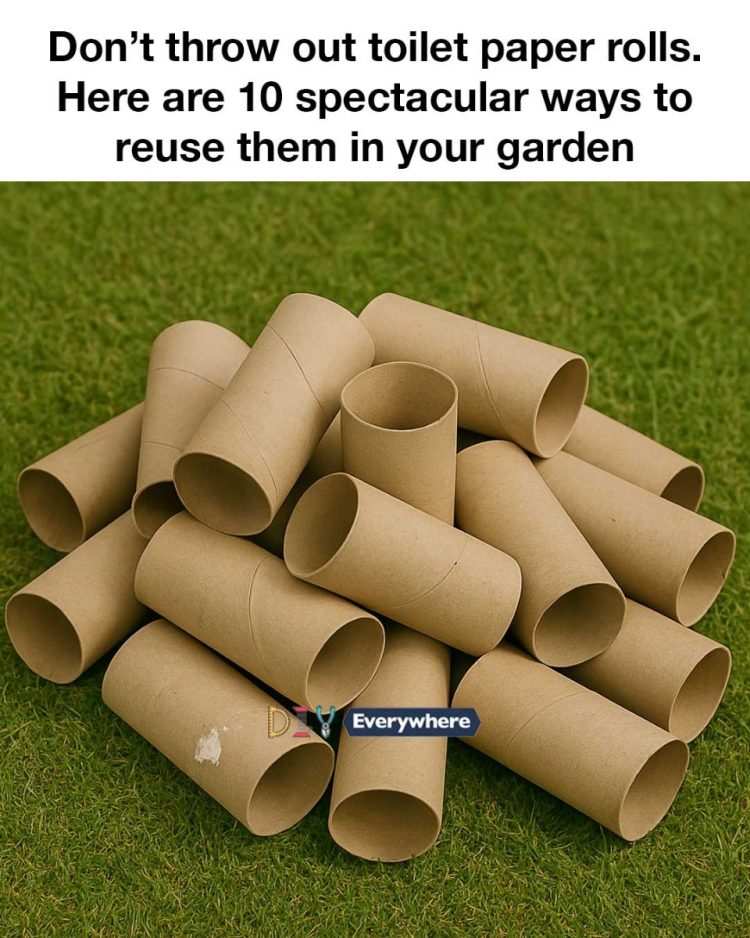In an era where sustainability and eco-friendliness are becoming increasingly important, finding creative ways to reuse everyday items can make a significant impact. Toilet paper rolls, often discarded without a second thought, offer a wealth of possibilities for gardeners looking to enhance their green spaces. By repurposing these cardboard tubes, you can not only reduce waste but also add functionality and beauty to your garden. This article explores ten innovative ways to transform toilet paper rolls into valuable gardening tools, helping you cultivate a more sustainable and efficient garden.
Benefits of Reusing Toilet Paper Rolls in the Garden
Reusing toilet paper rolls in the garden offers numerous benefits. Firstly, it reduces waste, contributing to a more sustainable lifestyle. Secondly, these rolls are biodegradable, making them an eco-friendly choice for garden projects. They are also versatile, serving multiple purposes from seed starters to pest control solutions. Additionally, using toilet paper rolls can save money, as they replace the need for purchasing certain gardening supplies. By incorporating these simple items into your gardening routine, you can enhance plant growth, improve soil health, and attract beneficial wildlife, all while minimizing your environmental footprint.
1. Seed Starters: A Simple and Effective Beginning
Toilet paper rolls make excellent seed starters, providing a biodegradable option for nurturing young plants. Simply cut the rolls in half, fill them with potting soil, and plant your seeds. As the seedlings grow, the entire roll can be planted directly into the ground, where it will decompose naturally, enriching the soil. This method not only simplifies the transplanting process but also reduces root disturbance, promoting healthier plant development.
2. Composting Helpers: Enhancing Your Compost Pile
Adding toilet paper rolls to your compost pile is a great way to boost its effectiveness. The cardboard provides a carbon-rich ‘brown’ material that balances the nitrogen-rich ‘greens’ like kitchen scraps. Shred the rolls into smaller pieces to speed up decomposition and improve aeration within the pile. This practice not only recycles the rolls but also contributes to producing nutrient-rich compost that will enhance your garden’s soil quality.
3. Root Protectors: Safeguarding Young Plants
Young plants are often vulnerable to pests and harsh weather conditions. By placing a toilet paper roll around the base of a seedling, you create a protective barrier that shields it from slugs, snails, and other ground-dwelling pests. Additionally, the roll provides some insulation against temperature fluctuations, helping to stabilize the microenvironment around the plant and support healthy growth.
4. Bird Feeders: Attracting Wildlife to Your Garden
Transforming toilet paper rolls into bird feeders is a simple project that can attract a variety of birds to your garden. Spread peanut butter or a similar sticky substance on the outside of the roll, then roll it in birdseed. Hang the finished feeder from a tree branch or garden hook. This not only provides a food source for birds but also encourages biodiversity in your garden, which can help with natural pest control and pollination.
5. Plant Markers: Organizing Your Garden Efficiently
Keeping track of different plant species in your garden can be challenging, but toilet paper rolls offer an easy solution. Cut the rolls into rings, write the plant names on them with a marker, and place them around the base of each plant. This method is not only cost-effective but also ensures that your garden remains organized and easy to manage, especially during the busy planting season.
6. Bug Traps: Natural Pest Control Solutions
